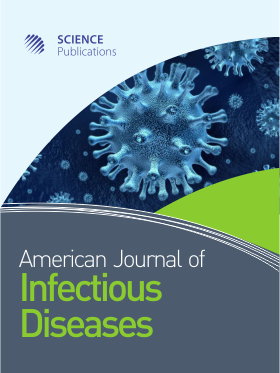Methicilin Resistant Staphylococcus aureus Carriage amongst Healthcare Workers of the Critical Care Units in a Nigerian Hospital
- 1 University of Ilorin Teaching Hospital, Nigeria
Abstract
Problem statement: Methicilin Resistant Staphylococcus Aureus (MRSA) Nosocomial Infection (NI) outbreaks and prevalence among various populations are well reported in literature particularly for developed countries. NI due to MRSA is a known cause of increased hospital stay, cost, morbidity and mortality especially among the critically ill. There is paucity of information on MRSA in developing nations including the carriage by critical healthcare givers who are potential transmitters. In most hospital in developing countries like Nigeria, there is neither surveillance system or control policy for MRSA. Approach: We screened healthcare workers in the critical care units of the University of Ilorin Teaching Hospital (UITH), Ilorin, Nigeria for MRSA and determined vancomycin susceptibility of the isolates. Swabs of both anterior nares and web spaces of the hands were taken, transported and incubated in Tween 80 at 35°C overnight aerobically before inoculation onto Mannitol Salt Agar (MSA). Inoculated MSA were incubated aerobically at 35°C for 18-24 h. Staphylococcus aureus was identified as Gram positive cocci with positive catalase, coagulase and DNAse test. MRSA were identified by combined oxacillin and cefoxitin discs diffusion method. Sensitivity to vancomycin was by vancomycin discs diffusion and vancomycin agar screen plating. Results: Of the 198 healthcare workers screened, 104 had MRSA either in the nose, hand or both giving a carriage rate of 52.5%. Nasal carriage (38.9%) was higher than hand (25.3%). Doctors (22.7%) and Nurses (16.7%) were the predominant carriers. MRSA isolates were resistant to commonly available antibiotics. Only 1 (1.3%) of the nasal isolates was vancomycin resistant. Conclusion: MRSA carriage among healthcare workers in the critical care units of the Nigerian hospital is high with doctors and nurses being the major carriers. The MRSA isolates were multi-drug resistant which may lead to increased morbidity and mortality if transmitted to the critically-ill. There is need for MRSA control policies in hospitals with settings of our type.
DOI: https://doi.org/10.3844/ajidsp.2010.18.23

- 7,285 Views
- 5,048 Downloads
- 12 Citations
Download
Keywords
- Methicilin
- resistance
- Staphylococcus aureus
- critically-ill
- healthcare workers
- Nigeria
